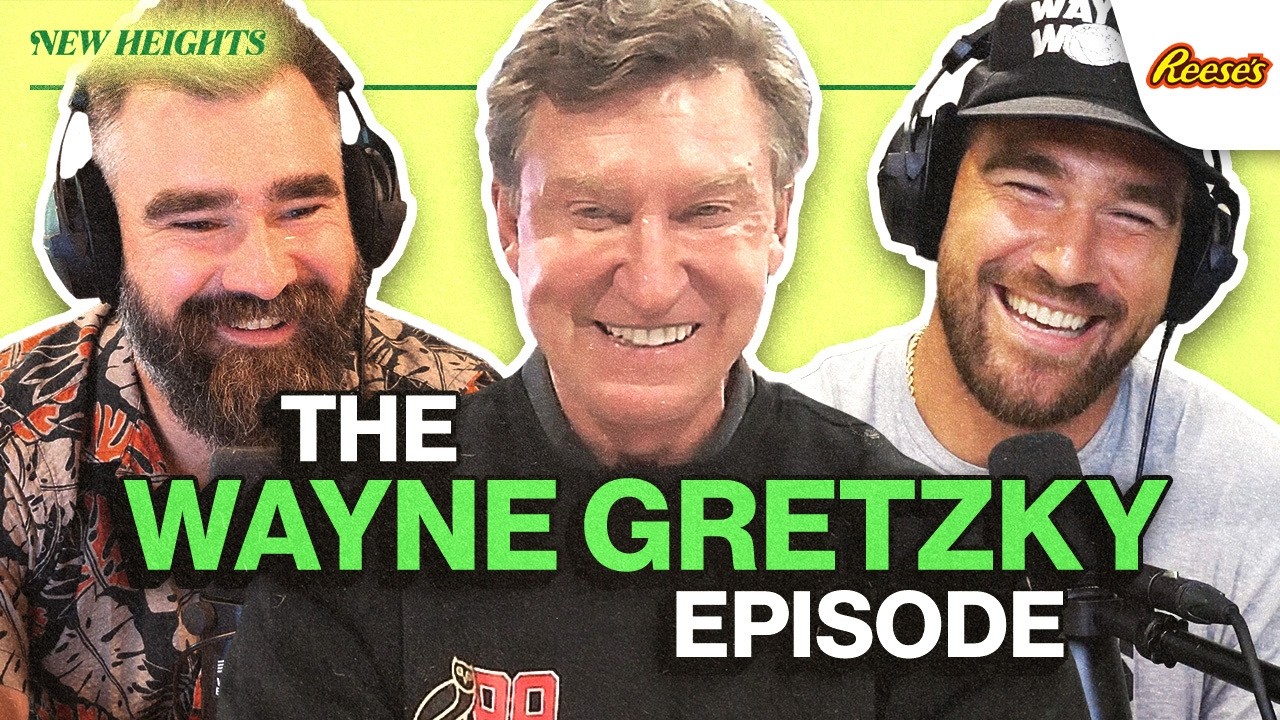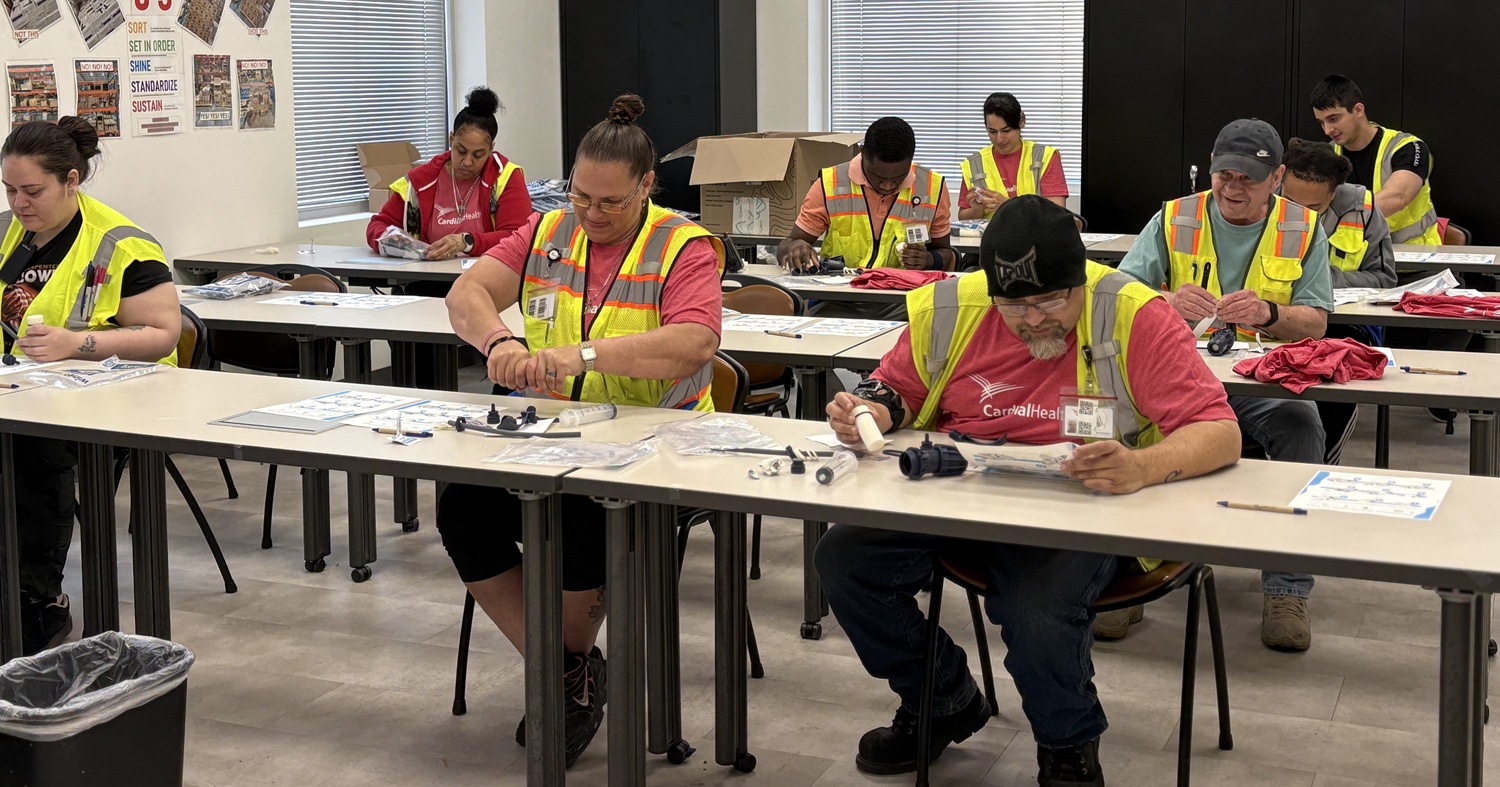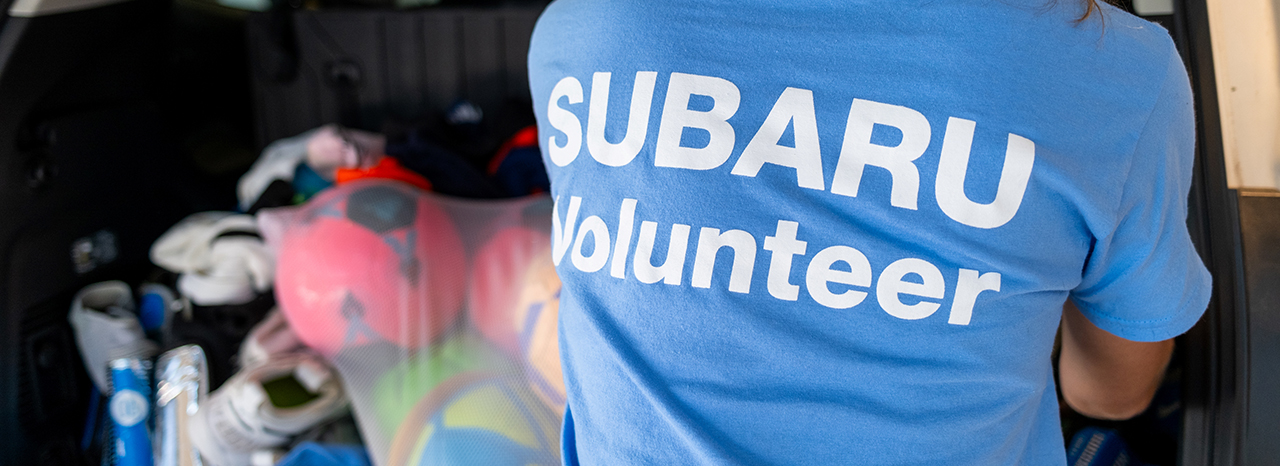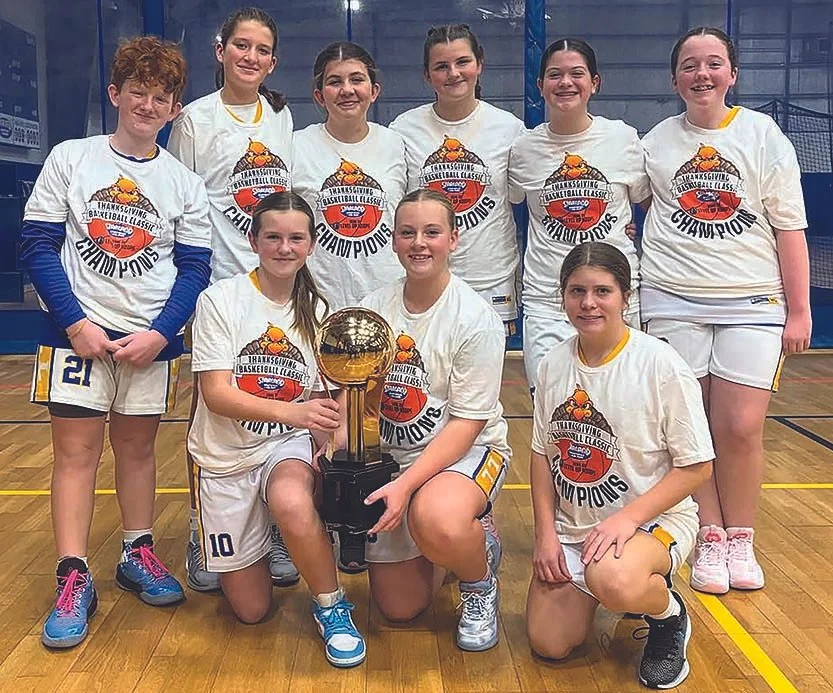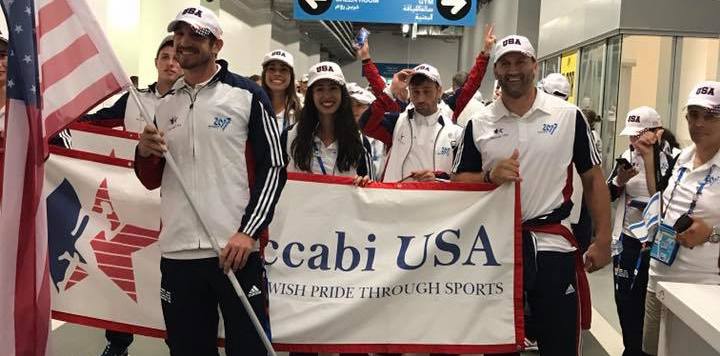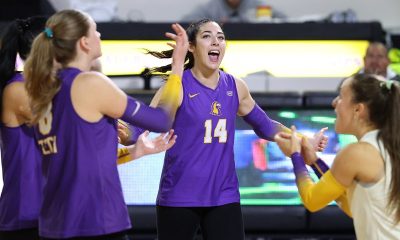Subaru of America, Inc. today announced five local beneficiary organizations for its Subaru: Gear for Good initiative, which is dedicated to expanding access to and growing the game of soccer. Coinciding with the draw day announcement ahead of the soccer excitement coming to Philadelphia in 2026, the initiative will provide new and gently used equipment to youth in the local Philadelphia and Camden communities, underscoring Subaru and its retailers’ longstanding commitment to community and youth empowerment.
The selected organizations are:
- Capitolo Youth Soccer Club (CYSC) – CYSC uses soccer as a vehicle to instill universal values of fitness, fun, sportsmanship, respect, community, access, and equality. CYSC has a unique approach and philosophy to teaching soccer, nurturing players’ passion by providing an atmosphere in which they are free to experiment, create, and fail, without fear of judgment, resulting in truly fine players and ambassadors of the Beautiful Game.
- Dr. Henry H. Davis School – The Dr. Henry H. Davis School in East Camden is named after a Camden physician, school board member, Camden’s first medical inspector, and first chief medical inspector. His work in the areas of school health and nutrition saved countless children’s lives in Camden City. Currently, the school houses Pre-Kindergarten through 8th grade for approximately 475 students of various learning modalities.
- Project Primacy – Project Primacy Foundation is a non-profit organization focused on youth soccer, particularly for Black and Brown children in inner-city Philadelphia. They aim to provide access to sports, mentorship, and other opportunities to support their development. The foundation has been involved in various initiatives, including free soccer clinics, and fundraising events like their “Dribble & Carry” Broad Street RUNdraiser.
- Safe-Hub Philly – Safe-Hub provides a physically and emotionally safe space for young people to access opportunities and support through soccer-based out-of-school-time programs that focus on personal development, health, education, and employment. Their goal is to bring high-quality sports programming and supportive services to families, providing a one-stop-shop for families to receive support through the stigma-free circumstances of coming to soccer practice.
- Youth Development United provides children from under-served communities with extracurricular opportunities, inspiring them to excel. Specifically, YDU provides children and their families with memorable after-school and weekend opportunities that increase their access to mentorship, wellness, and personal development through various sports and recreational opportunities.
Alan Bethke, Senior Vice President of Marketing, Subaru of America: “At Subaru, we believe in showing up for our communities in ways that truly matter. These organizations are already doing powerful work to support kids through the game of soccer, and we’re proud that Subaru: Gear for Good will help deepen that impact, especially as we head into 2026. Every piece of equipment collected and donated brings us closer to breaking down barriers and making the game more accessible for all.”
Each beneficiary was selected for its mission to support local youth through soccer, sports, and development programs. These organizations will receive brand-new gear from Subaru tailored to their specific programs and needs. Through partnerships with Major League Soccer’s Philadelphia Union and the youth sports nonprofit Leveling the Playing Field, Subaru is also collecting soccer equipment via its donation bin network, which includes 17 Subaru retailers and Subaru Park, the Union’s home stadium in Chester, PA. This gear will be distributed to more than 100 youth programs on an ongoing basis in coordination with Leveling the Playing Field and Philadelphia Parks & Recreation. Collection will continue through April 3, 2026, as Subaru works toward its goal of distributing at least 2,026 pieces of new and gently used equipment.
Susan Slawson, Commissioner, Philadelphia Parks & Recreation: “Philadelphia Parks & Recreation is proud to stand alongside Subaru, the Philadelphia Union, and Leveling the Playing Field in a partnership that puts our young people first. Every day, we see how access to sports can open doors—building confidence, community, and dreams for the future. As we prepare for the world stage in 2026, this initiative underscores Philadelphia’s commitment to giving every young person a chance to truly see themselves in the game.”
As part of the collection initiative, community members throughout Philadelphia and Southern New Jersey can donate new or gently used soccer gear, including cleats, goalie gloves, shin guards, soccer balls, and more, through April 3, 2026, for a chance to win a range of prizes, including a trip to the 2026 MLS All-Star Weekend. The Subaru: Gear for Good Sweepstakes (official rules) is open to legal U.S. residents at least 18 years of age who live within a 75-mile radius of Subaru Park.
Kaitlin Brennan, Chief Operating Officer, Leveling the Playing Field: “Partnering with Subaru in celebration of the global soccer heading to Philadelphia greatly amplifies our mission – to expand access and equity within the realm of youth sports. This effort provides children with the opportunity to get involved with sports at a young age, granting the chance to experience the holistic benefits of youth sports on their physical, mental, and emotional health.”
Charlie Slonaker, Chief Revenue Officer, Philadelphia Union: “At the Union, we’re committed to making the game accessible to every child who wants to play. The Subaru: Gear for Good initiative helps remove equipment barriers, so access is determined by passion, not resources. With the excitement of 2026 coming to Philadelphia, we’re proud to work with Subaru of America and Leveling the Playing Field to expand opportunities for youth across the area and help continue to grow the game.”
The Subaru: Gear for Good initiative will give even more kids access to the gear they need to join teams, stay active, and enjoy the game. Any surplus donated items will be shared with additional youth organizations throughout the collection period. For more information, including donation locations, eligibility details, and official rules, visit philadelphiaunion.com/SubaruGearforGood.
About Subaru of America, Inc.
Subaru of America, Inc. (SOA) is an indirect wholly owned subsidiary of Subaru Corporation of Japan. Headquartered in Camden, N.J., the company markets and distributes Subaru vehicles, parts, and accessories through a network of about 640 retailers across the United States. All Subaru products are manufactured in zero-landfill plants, including Subaru of Indiana Automotive, Inc., the only U.S. automobile manufacturing plant designated a backyard wildlife habitat by the National Wildlife Federation. SOA is guided by the Subaru Love Promise®, which is the company’s vision to show love and respect to everyone and to support its communities and customers nationwide. Over the past 20 years, SOA and the SOA Foundation have donated more than $340 million to causes the Subaru family cares about, and its employees have logged over 115,000 volunteer hours. Subaru is dedicated to being More Than a Car Company® and to making the world a better place. For additional information, visit media.subaru.com. Follow us on Facebook, Instagram, LinkedIn, TikTok, and YouTube.
About Philadelphia Union
The Philadelphia Union is an innovative, forward-thinking professional soccer club competing in Major League Soccer (MLS) and one of Philadelphia’s five major league sports teams. Driven by unprecedented fan support, MLS awarded the Philadelphia expansion franchise rights to Jay Sugarman in 2008 and the Union kicked off its inaugural season in 2010. The club has reached the finals of the Lamar Hunt U.S. Open Cup in 2014, 2015 and 2018, and has appeared in the MLS Cup Playoffs in 2011, 2016, 2018, 2019, 2020, 2021, 2022, and 2023. In 2020, the Union were awarded the club’s first Supporters’ Shield after finishing with the best regular season record in MLS. In 2022, the Union reached the MLS Cup Final for the first time in club history. In 2023, the Union reached the Eastern Conference semifinals, becoming the only Eastern Conference team to reach the semifinals in four of the last five seasons.
The Philadelphia Union is part of parent company Union Sports and Entertainment LLC, which also operates Philadelphia Union II, the Philadelphia Union Academy, Philadelphia Union Foundation and Philadelphia Union Youth Programs. With a commitment to developing youth, the Union has signed 25 academy prospects to homegrown player contracts.
The Union play at Subaru Park in Chester, PA on the banks of the Delaware River. The custom-built stadium is part of the Union’s unique waterfront campus, featuring a historic power plant rebuilt into a 400,000 sq. ft. creative office building, a state-of-the-art Training Complex, over seven acres of professional-grade practice pitches, and the newly announced WSFS Bank Sportsplex, a world-class, 365-day-a-year sports and recreation complex featuring indoor fieldhouse and seven outdoor fields. For more information about the Philadelphia Union, visit www.philadelphiaunion.com and follow @PhilaUnion on Twitter or Instagram.
About Leveling the Playing Field
Leveling the Playing Field (LPF) is a nonprofit organization committed to expanding access and equity in youth sports by redistributing new and gently-used sports equipment to under-resourced communities. Founded in 2013, LPF addresses the growing gap between those who can afford to participate in sports and those who cannot, recognizing the high cost of sporting goods as a major barrier.
Through a network of community donations and volunteers, LPF collects and sorts sports and recreational equipment, then supplies it to schools, community programs, and youth organizations across several regions. This philanthropic model not only provides gear but also empowers organizations to redirect limited budgets toward transportation, nutrition, staffing, and program expansion—making youth sports more inclusive and accessible for all.
With LPF’s support, youth programs are able to stretch their resources further. By removing the barrier of equipment cost, LPF helps create more inclusive and enriching opportunities for young athletes. Together, we’re building a future where every child has the chance to play, grow, and thrive through sports.
For more information, visit levelingtheplayingfield.org and follow us @lpfsports on Instagram.
Philadelphia Parks & Recreation
Philadelphia Parks & Recreation (PPR) advances the prosperity of the city and the progress of its people through stewardship of nearly 10,200 acres of public land and waterways, and management of 500 recreation buildings, 166 miles of trail, and 250 playgrounds. PPR offers safe, enjoyable recreation, environmental and cultural programs and events throughout Philadelphia’s parks and recreation system. PPR promotes the well-being and growth of the city’s residents by connecting them to the natural world, to each other, and to fun, physical, and social opportunities. More than 3,000 full-time and seasonal employees proudly serve Philly residents every day, ensuring the department remains a modern, equitable and exceptional parks and recreation system. Visit www.phila.gov/parksandrec and follow @philaparkandrec on Facebook or Instagram.

